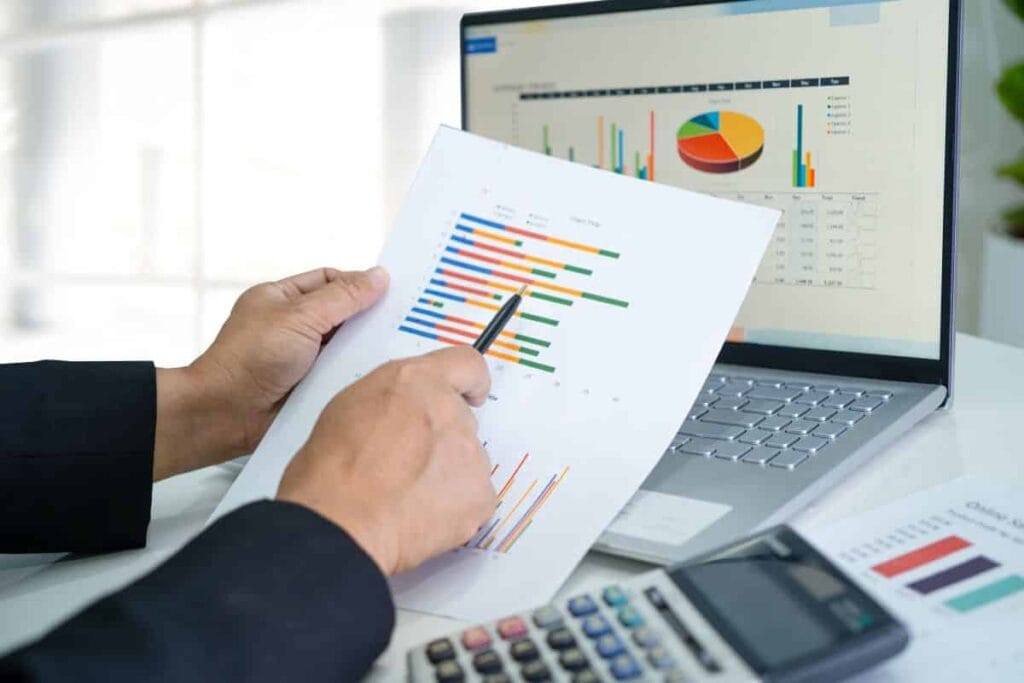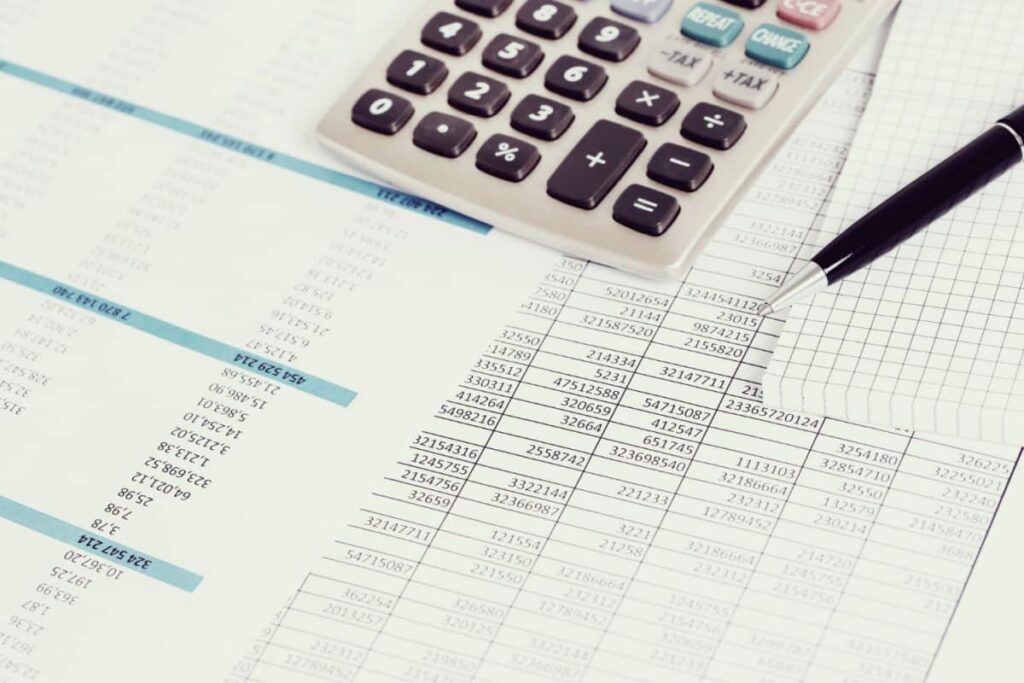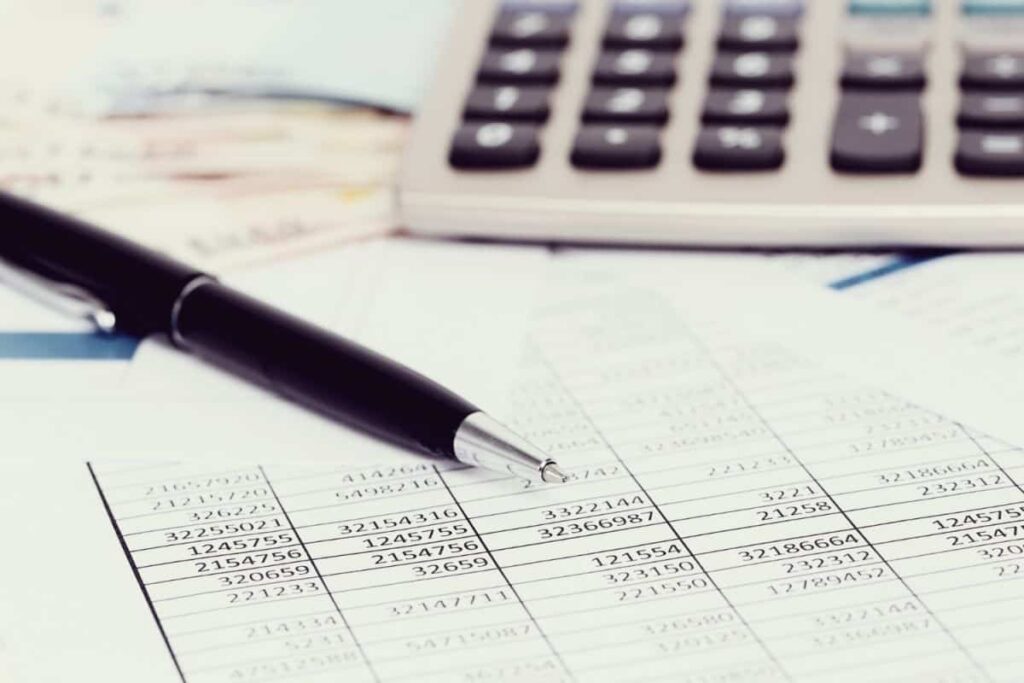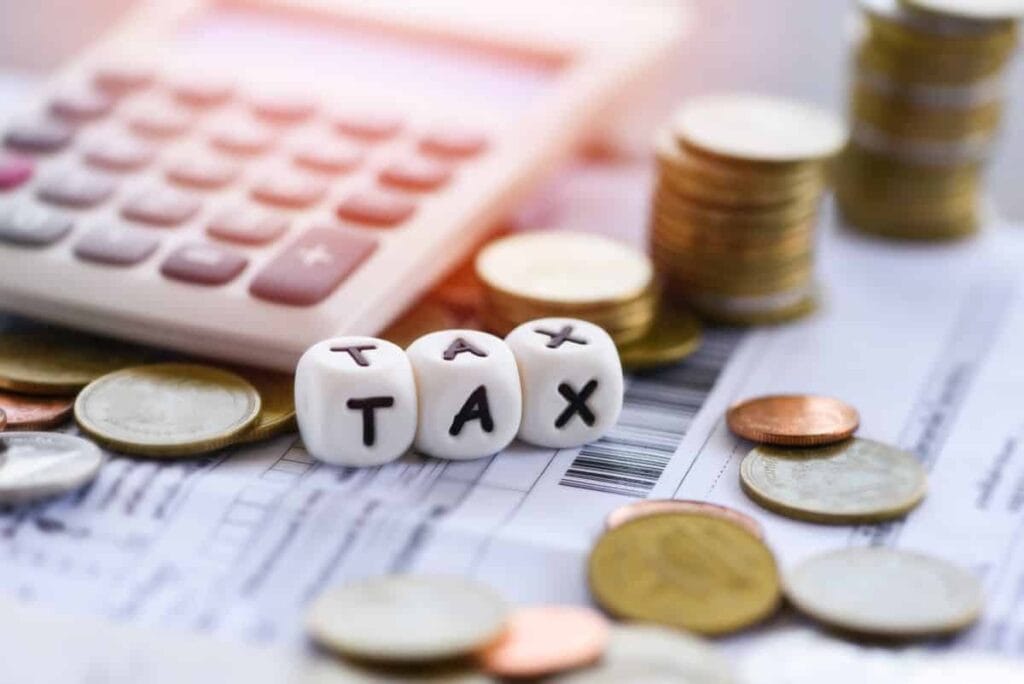Australian individuals and companies must prepare their taxes at the end of the financial year (EOFY). The urge to complete might be overpowering, but wise planning and actions can optimise tax benefits. Consider this last-minute tax advice before EOFY.
Review Your Deductions
The EOFY season is like financial chess; evaluating deductions is key. Not simply locating every receipt in your drawer but comprehending what you may claim to reduce your tax burden.
1. Understanding Work-Related Expenses
Consider work-related costs beyond the obvious. Travel, uniforms, union fees, work-related books, journals, and tools and equipment count. Directly linking expenses to revenue is crucial. When your company reimburses you, deductions are prohibited.
2. Home Office Costs: The New Normal
As remote work grows, home office expenditures are a popular subject. Some heating, cooling, lighting, and furnishing expenditures are deductible. Calculating these deductions is easier with the ATO's simplified technique. But, keep a record of the hours you work from home, as this is crucial for your claim.
3. Charitable Contributions: Giving Back
Donations to registered charities can be claimed as deductions. Giving back is rewarding, but you need a receipt for every donation. Keep track of philanthropic deeds, whether a few pennies in a collection box or a large donation to a charity you care about.
4. Education and Self-Improvement
Investing in yourself can also offer tax benefits. Courses, workshops, and seminars directly related to your current job can be claimed. This excludes classes for future employment, but you're good if it's about enhancing your existing abilities.
5. The Devil is in the Details
Accurate record-keeping is your best friend when it comes to deductions. The ATO loves documentation, so keep those receipts, bank statements, and logs. Digital tools and apps can be lifesavers here, turning a mountain of paper into an organised digital file.
6. Navigating the Grey Areas
There are always grey areas in tax deductions. For instance, if you buy a suit for work, it's generally not deductible. But if you buy a specific uniform with a logo, it is. In these details, a tax professional may help you claim accurately and avoid ATO scrutiny.
Reviewing deductions requires tax-savvy spending analysis. Understanding the regulations, maintaining meticulous records, and knowing when to seek professional counsel are key. As EOFY approaches, evaluate and make sure you're not losing money.
Prepay Expenses
Expanding on prepaying expenses as the EOFY approaches in Australia it's akin to a strategic play in the financial year-end dance. This approach optimises tax position by altering cost time. Early bill payment is one part of a complex approach that demands caution and forethought.
When addressing prepaying expenditures, we consider future year's spending. Insurance, professional associations, and trade journal subscriptions are examples. Paying these costs before the EOFY advances the tax deduction to the current year.
Prepaying loan interest can benefit investment property owners. Prepaying interest for the next year might cut your taxable income greatly.
It only works for some. How well this method works depends on your present and future revenue. Prepaying costs might be useful if you expect a bigger income this year.
The ATO's prepayment restrictions must also be considered. Prepayment and deduction restrictions apply. Individual taxpayers' prepayments must be at most 12 months and must finish in the next fiscal year.
Another factor is cash flow. Prepaying bills early may hurt your short-term finances. A balance is needed between current cash spend and future tax advantage.
Prepaying costs is proactive tax planning. Understanding your existing and future finances, tax regulations, and how to use them is key. Reviewing your planned costs and prepaying might save you taxes as EOFY approaches.
Contribute to Your Superannuation
The end of the financial year is a good time for Australians to improve their superannuation. Preparing for retirement is smart and might provide immediate tax savings while safeguarding your future.
1. Understanding the Tax Advantages
You may save for retirement and spend your money tax-efficiently by contributing to your super. Your super fund contributions are taxed at 15%, possibly less than your rate. This difference can save a lot of tax, especially at a higher rate.
2. Salary Sacrificing: A Pre-Tax Benefit
One approach to help is to forego pay. You can ask your employer to put some of your pre-tax pay into your super fund. It lowers your taxable income and tax burden while increasing your retirement savings.
3. Personal Contributions: Claiming a Deduction
Tax-deductible personal super fund donations are also allowed. This is beneficial for self-employed people or employers without pay sacrifice. To claim the deduction, inform your super fund and submit the documentation.
4. Understanding Contribution Caps
It's crucial to be aware of the contribution caps. Your annual super contribution is limited before extra tax comes in. The current fiscal year concessional (pre-tax) contribution ceiling is $27,500. This comprises employer donations, salary sacrificed amounts, and tax-deductible personal contributions.
5. Carry-Forward Contributions: A Flexible Option
If you have not reached your concessional contributions ceiling in past years, you can "carry forward" excess funds. This is important if you have a higher income this year or a windfall you want to invest tax-effectively.
6. The Non-Concessional Cap: After-Tax Contributions
Non-concessional (after-tax) contributions are capped. This maximum is $110,000 each year for most. If you've maxed out your concessional contributions, these contributions might enhance your super balance without reducing your taxable income.
7. Consider Your Retirement Strategy
Consider your long-term retirement strategy while donating to super. Funds in superannuation are usually locked up until you reach your preservation age and fulfil a release requirement.
Contributing to superannuation is a tax-effective method to invest for retirement and get immediate advantages at EOFY. Knowing and using the caps and guidelines may optimise these benefits and ensure your financial future.
Review Your Investment Portfolio
Your investment portfolio assessment revolves around tax-loss harvesting. This entails identifying losses in your assets. Selling these underperforming assets before EOFY may be smart. Capital losses can reduce your capital gains tax bill by offsetting other investment profits yearly. Using unsuccessful investments to reduce taxes is like making lemonade.
This method involves precise balancing. Realising losses can be tax-friendly, but you must examine your investments' long-term prospects. Selling assets should be part of your investing plan, not merely for tax benefits.
Portfolio evaluation also considers selling lucrative investments at the right time. If you're selling appreciated assets, the timing might affect taxes. When you own an item for more than 12 months in Australia, you may qualify for a capital gains tax credit, which can significantly lower your tax bill.
Diversification is another important investment portfolio assessment factor. This is a good opportunity to evaluate your investing diversification across asset classes and industries. This reduces risk and lets you take advantage of varied investment tax advantages.
EOFY is also a good opportunity to evaluate investing goals and risk tolerance. Your financial condition and goals might vary, so your investment portfolio must adapt for long-term success.
As EOFY approaches, investment portfolio review goes beyond compliance. You may optimise your tax status, connect your assets with your financial goals, and plan for the year ahead. By examining your assets holistically, you may make tax-efficient decisions that meet your financial goals.

Update Your Logbooks
When the EOFY approaches, updating your logbooks is like planning your annual work-related travel to maximise every kilometre. An up-to-date logbook is essential to optimising vehicle-related tax deductions in Australia.
Updating your logbook requires accuracy and thoroughness. Every work-related trip should be meticulously recorded, including the date, mileage, purpose, and start and finish places. It may seem boring, but this rigorous record-keeping is the foundation for claiming many vehicle costs, including gasoline, maintenance, and depreciation.
The ATO needs a current logbook every five years, although updating it yearly is beneficial. Why? Because work habits can change—you may have changed employment, your workplace, or your work-related travel. These modifications may influence your work-related vehicle use % and claim amount.
For people who require a logbook yet drive their car for work, the EOFY is a crucial reminder. The ATO allows a 12-week continuous period logbook to represent your whole year's travel. Getting it done might seem like a sprint, but it can be a worthwhile exercise, especially if your vehicle use is substantial.
Remember the technical developments that can make this process easier. Many applications and tools monitor, classify, and report your trips. Digital solutions simplify a paper trail into a simple operation.
Updating your logbook is for compliance and to reflect on work-related travel over the prior year. It can reveal your travel patterns, suggesting more effective routes and timetables to save time and money.
EOFY logbook updates are essential for maximising vehicle deductions. Being detailed, accurate, and work travel-related is key. Well-maintained logbooks help you comply with ATO standards and collect the amount you're entitled to, making them financially and practically beneficial.
Organise Your Records
Expanding on organising your records as the EOFY approaches, it's like piecing together a complex puzzle where every slip, receipt, and document is crucial. In Australia, having your records in order is not just about being prepared for tax time; it’s about painting a clear and compliant picture of your financial year.
Knowledge of what to save is the first step to record organisation. This includes invoices, bank and credit card statements, deduction receipts, and work-related spending records. It's not enough to acquire these documents—you must also organise them. Imagine instantly finding that receipt instead of wrecking your house at the last minute.
The importance of this organisation goes beyond mere convenience. The ATO can request documentation of your claims five years after you file your tax return. You're ready for this EOFY and future requests or audits if your records are organised. It's your financial story neatly archived, ready to be told whenever needed.
Digital organisation is transforming this once daunting task. Scanning receipts, using financial software to track expenses, and storing documents on cloud services save physical space and add security and accessibility to your records. This digital shift isn't just about being modern; it’s about adding efficiency and reliability to your record-keeping process.
But, even in this digital age, it's vital to recognise the importance of backups. Technology, while convenient, can fail. Having digital backups (like an external hard drive) or physical ensures that a computer crash doesn't wipe out your entire financial year's records.
As EOFY approaches, take time to review your record-keeping system. Is it efficient? Can you find documents easily? Does it cover all aspects of your finances? This review often highlights areas for improvement, making each year's process smoother and less stressful.
Organising your records for EOFY in Australia is a critical step in your financial routine. It's about building a system that makes tax time easier and less stressful. Well-organised records make tax return filing easier and prepare you for future inspection, providing peace of mind that your financial story is comprehensive, compliant, and ready for review.
File On Time
Discussing the importance of filing your tax return on time as EOFY approaches Australia is like setting the final piece of a puzzle. The Australian Taxation Office receives a neatly packed year's financial activities. Filing on time is important for numerous reasons, not just checking a box.
On-time tax returns end the fiscal year. It's time to report income, claim deductions, and calculate taxes. Timely filing gives you clarity and closure, whether you owe tax or a refund. Faster filing means getting your refund sooner, which might enhance your finances.
Not only are there perks, but late filing also has consequences. The ATO may assess fines and interest for missing the deadline. These fines might increase the longer your return is late, making a small mistake expensive. Like a tiny boat leak, it gets worse if ignored.
Filing may be stressful for individuals who dread tax season. The procedure won't improve by postponing. Delays cause receipts to be lost, memories to fade, and the process to become more difficult. You prevent this stress and confusion avalanche by facing it and submitting it on time.
The strategy goes into submitting on time. You can plan for the upcoming fiscal year knowing your tax condition. Filing early lets you plan for tax payments. If due a return, consider this in your financial planning.
The ATO may be flexible if you're worried about hitting the deadline. Proactively contact the ATO if you need help. They may provide extensions or payment options to make tax payments easier.
Your financial health depends on filing your tax return on time, not just legally. It brings clarity, peace of mind, and a financial basis for the year. So as EOFY approaches, remember that timely filing is the final, crucial step in your financial year's journey.
Conclusion
These last-minute tax recommendations aren't only about getting through another financial year in Australia as EOFY ends. They allow you to direct your financial story, converting a tax-time scurry into a well-orchestrated finale.
Reviewing deductions, prepaying expenses, contributing to superannuation, managing investments, updating logbooks, organising records, and filing on time – each seemingly distinct step is an interconnected chapter of the same story. They collectively shape your financial picture, influencing how you emerge at the end of this fiscal chapter.
These stages take patience, foresight, and occasionally expert counsel. Visualising your financial wellness beyond the statistics is key. You may save taxes and improve your finances by actively interacting with these areas.
The importance of preparation and organisation stands out in this EOFY narrative. Understanding your finances and tax regulations empowers you to make smart decisions. Not simply completing responsibilities but exploiting opportunities.
Please note that EOFY is not the end. It's an important financial milestone to analyse, modify, and prepare. These recommendations can help you navigate tax time by optimising returns, reducing obligations, or complying with the ATO.
Let's end another fiscal year knowing we've optimised our tax situation. Here's to closing this chapter on a high note and stepping confidently into the new financial year!
Content Summary
- Australian individuals and companies must prepare their taxes at the end of the financial year (EOFY).
- To optimise tax benefits, it is crucial to review deductions and understand what you may claim to reduce your tax burden.
- Work-related expenses, such as travel, uniforms, union fees, books, journals, and tools and equipment, should be directly linked to revenue.
- Home office costs are becoming more popular due to remote work, and keeping a record of hours worked from home is essential for calculating deductions.
- Charitable contributions to registered charities can also be claimed as deductions, but keep track of philanthropic deeds.
- Education and self-improvement can offer tax benefits, as courses, workshops, and seminars directly related to the current job can be claimed.
- Accurate record-keeping is essential, with digital tools and apps being lifesavers.
- Navigating grey areas in tax deductions requires tax-savvy spending analysis, understanding regulations, maintaining meticulous records, and knowing when to seek professional counsel.
- Prepaying expenses, such as insurance, professional associations, and trade journal subscriptions, can optimise tax position by altering cost time.
- However, this approach requires caution and forethought, as it depends on present and future revenue.
- The ATO's prepayment restrictions apply, and individual taxpayers' prepayments must be at most 12 months long and finish in the next fiscal year.
- A balance between current cash spend and future tax advantage is needed.
- In conclusion, reviewing planned costs and prepaying can save taxes as EOFY approaches.
- The end of the financial year is ideal for Australians to improve their superannuation, as it provides immediate tax savings and safeguards their future.
- Contributing to your superannuation can help save money tax-efficiently, with contributions taxed at 15%. Salary sacrifices, personal contributions, and contribution caps are important considerations.
- The concessional contribution ceiling is $27,500, which includes employer donations, salary sacrificed amounts, and tax-deductible personal contributions.
- Carry-forward contributions allow individuals to carry forward excess funds if they have not reached their concessional contributions ceiling in past years.
- Most non-concessional contributions are capped at $110,000 annually, but these contributions can enhance your super balance without reducing your taxable income.
- It is essential to consider your long-term retirement strategy while donating to superannuation, as funds are usually locked up until you reach your preservation age and fulfil a release requirement.
- An investment portfolio assessment involves tax-loss harvesting, which involves identifying losses in assets and selling them before EOFY.
- This method involves precise balancing and considering the long-term prospects of investments.
- Diversification is another important factor, as it reduces risk and allows you to take advantage of varied investment tax advantages.
- As EOFY approaches, investing portfolio review goes beyond compliance, allowing you to optimise your tax status, connect your assets with your financial goals, and plan for the year ahead.
- By examining your assets holistically, you can make tax-efficient decisions that meet your financial goals.
- Updating your logbooks is crucial for optimising vehicle-related tax deductions in Australia.
- Accurate and thorough record-keeping is essential for claiming vehicle costs, including gasoline, maintenance, and depreciation.
- The ATO requires a current logbook every five years, but updating it yearly is beneficial due to changes in work habits.
- Digital solutions can simplify this process, making monitoring, classifying, and reporting trips easier.
- As the end of the EOFY (Early Years of Financial Year) approaches in Australia, it is crucial to organise your records and create a clear and compliant picture of your financial year.
- This includes organising invoices, bank statements, deduction receipts, and work-related spending records.
- Digital organisations are transforming this task by saving physical space, adding security, and storing documents on cloud services.
- However, it is essential to remember the importance of backups, as technology can fail, and a computer crash can wipe out an entire financial year's records.
- As EOFY approaches, it is essential to review your record-keeping system to ensure it is efficient, easily accessible and covers all aspects of your finances.
- This review can highlight areas for improvement, making each year's process smoother and less stressful.
- Filing your tax return on time is also important as it gives you clarity and closure, whether you owe tax or receive a refund.
- Late filing can lead to fines and interest from the Australian Taxation Office, which can be costly if ignored.
- Filing may be stressful for individuals who dread tax season, but facing it and submitting it on time is crucial.
- Submitting on time involves planning for the upcoming fiscal year knowing your tax condition, and considering the ATO's flexibility in providing extensions or payment options.
- Your financial health depends on filing your tax return on time, not just legally, and brings clarity, peace of mind, and a financial basis for the year.
- In conclusion, these last-minute tax recommendations are about getting through another financial year in Australia and directing your financial story, transforming a tax-time scurry into a well-orchestrated finale.
- Understanding your finances and tax regulations empowers you to make smart decisions and exploit opportunities.
- It is important to note that EOFY is not the end but an important financial milestone to analyse, modify, and prepare for.
Frequently Asked Questions
Before the EOFY, check for work-related deductions (including home office charges), charity gifts, and professional subscriptions. Only income-related costs can be deducted, and you must keep records.
Insurance premiums, professional subscriptions, and investment loan interest can be prepaid and claimed in the current financial year. The method might be useful if you foresee a bigger income this year than next. Be mindful of ATO prepayment restrictions.
Increased superannuation contributions can reduce taxable income. Contribution limitations may be exceeded, resulting in higher taxes. This method reduces taxable income and boosts retirement savings.
If you drive for work, you must keep a logbook to claim car expenditures. ATO needs a valid logbook every five years, although updating it yearly is suggested if work-related travel habits have altered.
Please file your tax return on time to avoid ATO fines and interest. These might rise as your return lingers. If you need help meeting the deadline, contact the ATO ahead of time to discuss extensions or payment alternatives.















